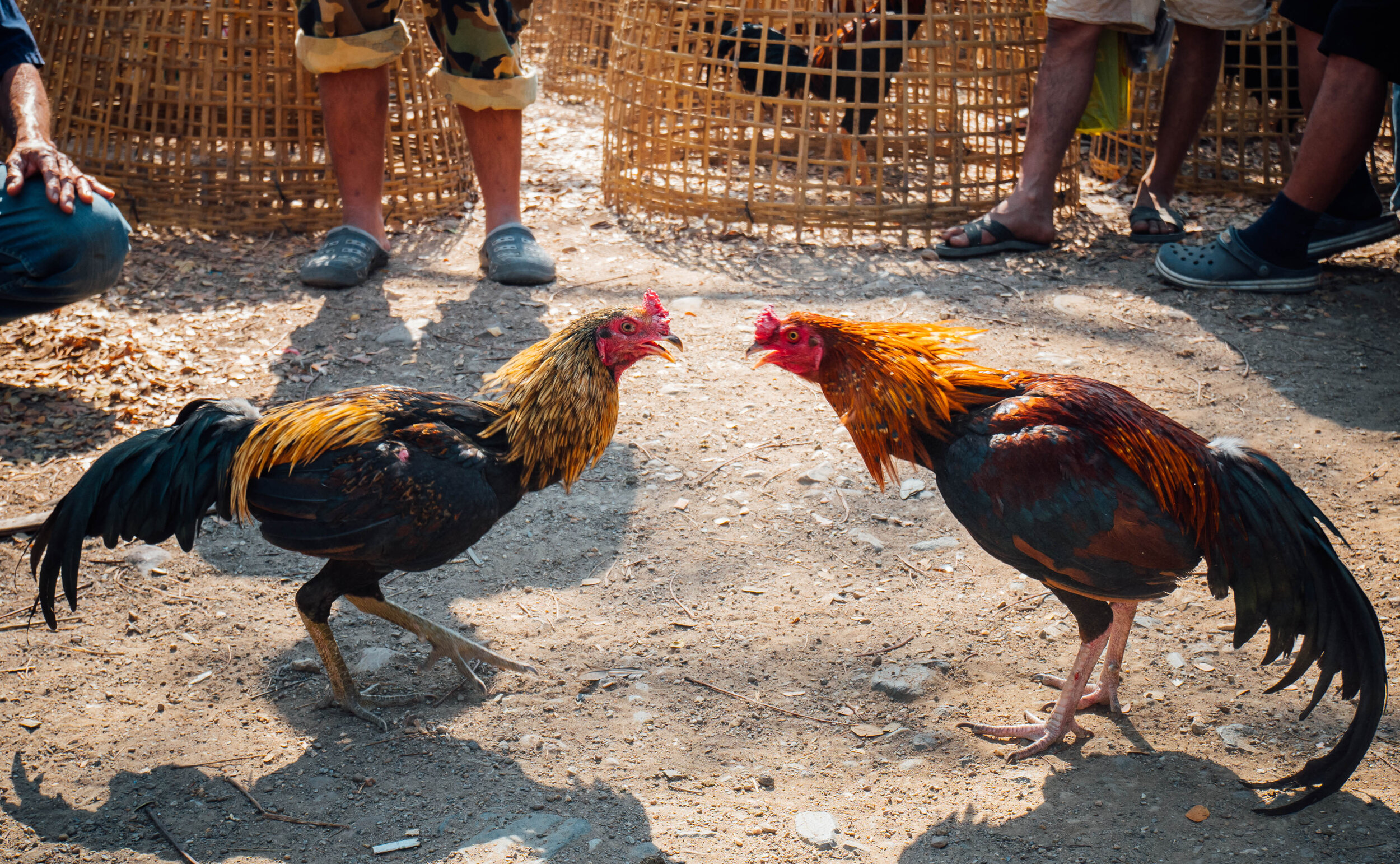Animal Wellness Urges U.S. Territories to Wind Down Cockfighting, as Upgraded Anti-Fighting Law Soon Becomes Effective
For Immediate Release:
Contact:
Wayne Pacelle • 202-821-5686
wayne@animalwellnessaction.org
U.S. Department of Justice Argues that Cockfighting is Unambiguously Outlawed in all Five U.S. Territories
Washington, D.C. – Top officials at Animal Wellness Action and the Animal Wellness Foundation urged the governors and other top elected leaders of American Samoa, Guam, Northern Marianas Islands, Puerto Rico, the U.S. Virgin Islands to signal to the community of cockfighting enthusiasts that they must cease their staged fights and related activities, including organizing derbies, staging fights, raising birds for fighting, selling animals for fighting, or attending these spectacles.
“The United States has the authority to outlaw staged animal fights in the U.S. Territories, and it has done so,” said Drew Edmondson, the former four-term Attorney General of Oklahoma and co-chair of the National Law Enforcement Council. “The Congress, the Federal Courts, and the U.S. Department of Justice have been crystal clear on the matter: engage in animal fighting activities and go to prison. All of our political leaders need to remind their constituents of these legal realities.”
Edmondson was attorney general when Oklahoma voters banned cockfighting in 2002. That same year, the Congress upgraded the federal law against animal fighting, banning any interstate or foreign commerce in the animals for fighting. As such, Edmondson has experience in helping Oklahoma transition from a hotbed of cockfighting to a jurisdiction that explicitly outlawed the practice.
“The cockfighting community in Oklahoma challenged our state law and they made efforts to challenge federal law without success,” added Edmondson. “As with both the states and the territories, Congress has the power to outlaw this conduct and exercised that authority in upgrading the law five times in the last 17 years.” All legal actions to invalidate the federal statute have failed.
In May, a number of cockfighting practitioners and a business named Club Gallistico de Puerto Rico, sued the federal government some months ago and argued that Section 26 of the Animal Welfare Act forbidding animal fighting is unconstitutional as applied to the territories. The U.S. Department of Justice filed a motion in response earlier this month, emphatically arguing that most animal fighting activities are already illegal in the territories and the upgrade of the law, set to take effect on December 20th, simply builds on the roster of prohibited activities. “Just as courts have unanimously affirmed the ability of the federal government to restrict animal fighting in the fifty states, so too may it do so with respect to the territories.”
According to the Department of Justice in its motion, the upgrade in the law stipulated that cockfighters “may not sponsor or exhibit cockfights, just as prior to §12616 they were prohibited from attending cockfights, possessing game cocks, or engaging in other animal fighting practices that were prohibited both in Puerto Rico and nationwide.”
Animal Wellness Action founder Wayne Pacelle recently traveled to Guam and was able to walk into a cockfight in progress, with about 150 people in attendance. “Between now and December 20th, it’s critical that they get the message by December 20th that staging fights, attending fighting, shipping birds or fighting paraphernalia, and even possessing fighting birds are federal felonies,” added Pacelle. “There’s no ‘Get-Out-of-Jail-Free’ card for cockfighters and other perpetrators of malicious cruelty to animals.” Pacelle called on the leaders of all the U.S. territories to affirm in a public way that the law, including the federal law against animal fighting, must be observed.
“The rule of law is a sacred doctrine in the United States,” added Edmondson, speaking on behalf of the 25-member Animal Wellness National Law Enforcement Council. “Defying our laws against animal cruelty is not tolerable, and we’ll be working hard to see that the law speaks in every part of the United States, including the Territories.”

